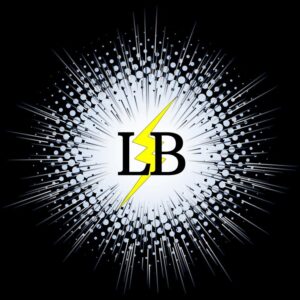Did you know that Long Beach’s biggest opportunity to participate in police oversight reform is tomorrow night?

You can be forgiven if you missed the insert in your City of Long Beach water and gas bill, never spotted the ads on the sides of Long Beach Transit buses or bus stop benches, did not come across the local news outlet city-placed ad, and even escaped the mayor’s mass email on the topic (even if you are signed up for these frequent announcements and your spam filter always waves them right through to your inbox)—because none of those things happened.
Long Beach is undergoing its first significant police oversight reform process in three decades, and Long Beach does not want you to know about it. At least not very many of you.
Why would that be?
After all, one can hardly imagine a lack of interest if the residents of Long Beach did know about it.
Nearly a year and a half ago, tens of thousands of protesters poured into the streets to protest LBPD practices. Whether it was a newfound awareness, perhaps spread online and by the various Black Lives Matter and other police reform groups, or the result of long-remembered or recent personal experience, suddenly the multitude spoke with their feet.
They condemned the police, as well as the mayor (as they made clear, in front of his condo, a few days later), city council, and city hall establishment behind the police, and they did so in numbers never before seen for a protest in Long Beach.
Ironically, the outpouring of emotion and anger that afternoon and evening overwhelmed the police, who for hours made almost no attempt at crowd control. The lack of order allowed exploitative elements to transform what had been a peaceful protest, during daylight, into looting and lawlessness after the sun went down and an unenforceable curfew order went into effect.
And yet, even as typical roles reversed, the police having utterly lost the upper hand, our police department continued to demonstrate why it had come under scrutiny in the first place. Rather than stopping the looting, the destruction of innocent small businesses, just feet away from their positions downtown, the police chose to focus their rubber bullets, also known as “less lethal rounds”, on the peaceful at the remaining focal points of protest at Pine Ave. intersections.
They even targeted a prominent radio journalist as he interviewed a protestor.
The rage at the city establishment went on for days, as more and more became aware of the tens of millions in payouts for wrongful death settlements for OIS (officer involved shooting) incidents in recent years (which is nothing new here).
Indeed, while stats emerged that Black residents were disproportionate victims of LBPD violence, memories of abuse across racial categories rose back to the surface. The inexplicable killing of Douglas Zerby, an inebriated white man riddled with 12 rounds while sitting on his front stoop, had long ago demonstrated that some LBPD officers were not fit for duty.
Awareness of abuse and corruption in local government tends to wax and wane, and over the subsequent days awareness was on the rise. A member of the city’s police oversight commission, the CPCC (Citizens Police Complaint Commission), Porter Gilberg addressed a protest and declared police oversight in Long Beach to be an utter “farce”. If you have not seen Gilberg’s categorical dressing down of the theater of the absurd which is the Long Beach police oversight commission, please read it. It shows how your city hall works: The appearance of reform is inevitably just a veil to conceal a system rotten to its core.
That reform last occurred over thirty years ago when the voters of Long Beach passed Prop. 1 on April 10, 1990, creating the Citizens Police Complaint Commission. That vote followed a year and a few months after police abuse activist Don Jackson, a Black man, had his head shoved by LBPD through a plate glass window one night, with NBC television cameras secretly rolling. The footage made for national news and was replayed constantly, resulting in charges for the officers.
And here we are again. Why does it take a national news incident or protests so massive they equal the population of a small city to move this city? Why must decades go by before we begin a hollow process lasting a year or more, until most have forgotten and long since assumed the city would do nothing?
A generation or so ago the pattern was no different than today. Then, city hall clearly intended Prop. 1 to quell public outrage, but it made sure to write a provision into the law to protect itself. The commission it created, the CPCC, would not have the final say on its own decisions. That authority would remain with the city manager, who quite literally could make any allegation, even if unanimously sustained by the commission, disappear with the flick of a pen, never to be spoken of again, the CPCC’s findings never even to be aired publicly.
After the Floyd protests, this decades-long, never ceasing pattern—the Long Beach way—has persisted.
Under the influence of our all-powerful police union, which picks and chooses winning and losing candidates with massive campaign spending, the Long Beach City Council has truly only pantomimed reform. They could not help revealing their true aim, very much short of the reform mark, in the very name of the process they enacted: the so-called ‘Framework for Reconciliation’ seemed to draw inspiration from the ‘truth and reconciliation’ commissions movement begun in South Africa after apartheid. Yet a crucial component stood out like a missing thumb: the truth-seeking and truth telling part of the process.
How can one reconcile parties divided by injustice before one has exposed the truth of that injustice? Only in Long Beach could we so blithely skip over that part of the equation.
Tomorrow, we will do the same. Again.
Tomorrow evening at 6:30 p.m. at Browning High School (2180 Obispo Ave., Long Beach) is the one opportunity afforded the residents of Long Beach to gather in person and share their outrage, their stories of police abuse, their feelings about the insufficiency of their police oversight commission, and their desire for change and reform—like getting a commission that is actually independent, that cannot be silenced by city management, that has a budget to hire its own investigators and counsel, that actually exercises subpoena power and interviews officers for a change, that is composed of commissioners who are not routinely intimidated into silence by city hall any longer—in a forum specifically for that purpose, in over thirty years.
And they, the residents, the people, the outraged, will not be there.
Just as they were not there at the first of these two ‘listening sessions’ being conducted for the CPCC reform process. Tomorrow night is the second. The first was held last Thursday evening on Zoom. Many of the handful of thirty or so attendees at that were city staff or employees of the consulting firms, Polis and Change Integration, hired by the city. One of the few minority voices heard during that session, noted that he was seeing “a lot of white faces”, which he felt was not bad in and of itself but was clearly not representative of the Long Beach community.
Why wasn’t the full community there? Why won’t it be there tomorrow? Not because tens of thousands, who were willing to march, no longer care.
They won’t be there because their mayor and city hall don’t want them there.
They won’t be there because they don’t know about it to be there.
They won’t be there because their city hall chose not to tell them.
They won’t be there because that would invite the truth, which Mayor Garcia and city hall have sought to suppress and avoid.
They won’t be there because the truth would upset the police union.
They won’t be there because the police union buys local politicians. It buys them with hundreds of thousands of dollars in glossy campaign mailers, the way you buy lettuce at the grocery store.
But that does not mean you should not be there, if you are reading this. In fact, it means that you must be there to speak about the police, the need for true oversight, the need for retraining and community-oriented policing, and the farce that is the Long Beach way of manipulating its residents into hearing no evil and seeing no evil (except, of course, that which the powerless lone individual experiences at the hands of the system) and thereby into mass silence.
















